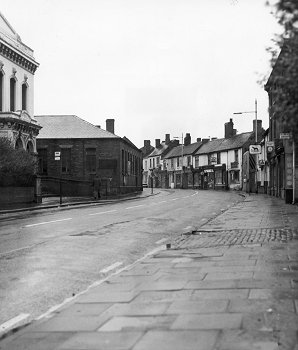 |
Pinfold Street in 1970. On the left is
the Wesleyan Chapel and the Wesleyan School, both of which were
demolished before the year had ended.
On the right is the Black Horse pub, the
favourite venue of Darlaston's horse racing fraternity. To its
right is William Winn's grocer's shop, the first building in the
area to be lit by electric light. |
| A close-up view of the empty Wesleyan
Chapel. |
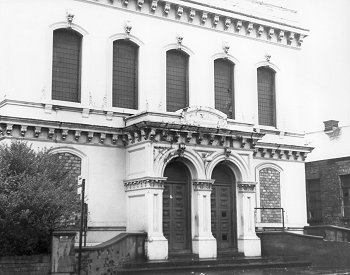 |
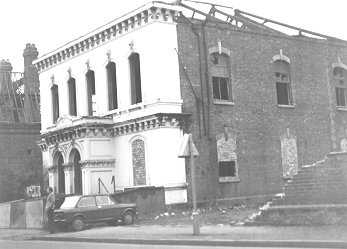 |
The Wesleyan Chapel during demolition
in 1970. The building on the far left was the minister's house. |
| A scene that hasn't changed much since
the early 1970s. R. Tedstone who sold carpets occupied the two
shops for many years. The shop on the right is Gladys' Corner
Shop selling all kinds of household items and ornaments. |
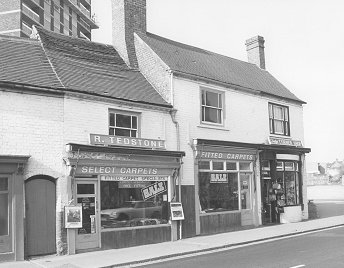 |
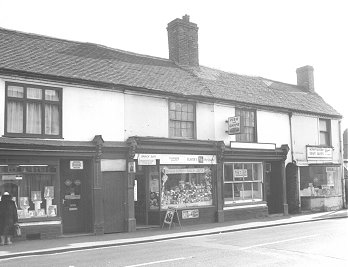 |
The southern side of the street in
1976. The row of 18th century shops were well-cared for and
sold a wide variety of goods.
The shop on the left is occupied by
Len Bayley, photographer.
It was previously occupied from 1900 to 1940 by John Aston the well-known
Darlaston photographer and became well known as Aston's
Studios. To the right is Toppers, a popular haunt for teenagers in the 1960s. |
| At this time Toppers had a snack
bar and sold sweets, cigarettes, and tobacco. W.M. Smith's fish and Chip shop is on the right,
next to the Wolverhampton Steam Laundry cleaner's shop. |
| Carrying on towards the Bull Stake are
two of Len Mitchell's shops. On the right is his pram shop that
sold children's prams and toys and on the left is Mitchell's
cycle and pram shop. |
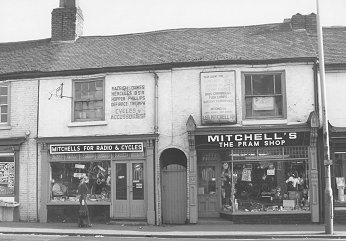 |
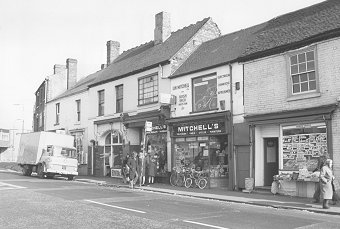 |
Continuing eastwards we find an
unnamed greengrocer's shop, Len Mitchell's television, radio,
and cycles shop and his fashion and jewellery shop. On the left
is Boynton & Sons butchers who were well-known in the town for
their quality meat and sausages etc. |
|